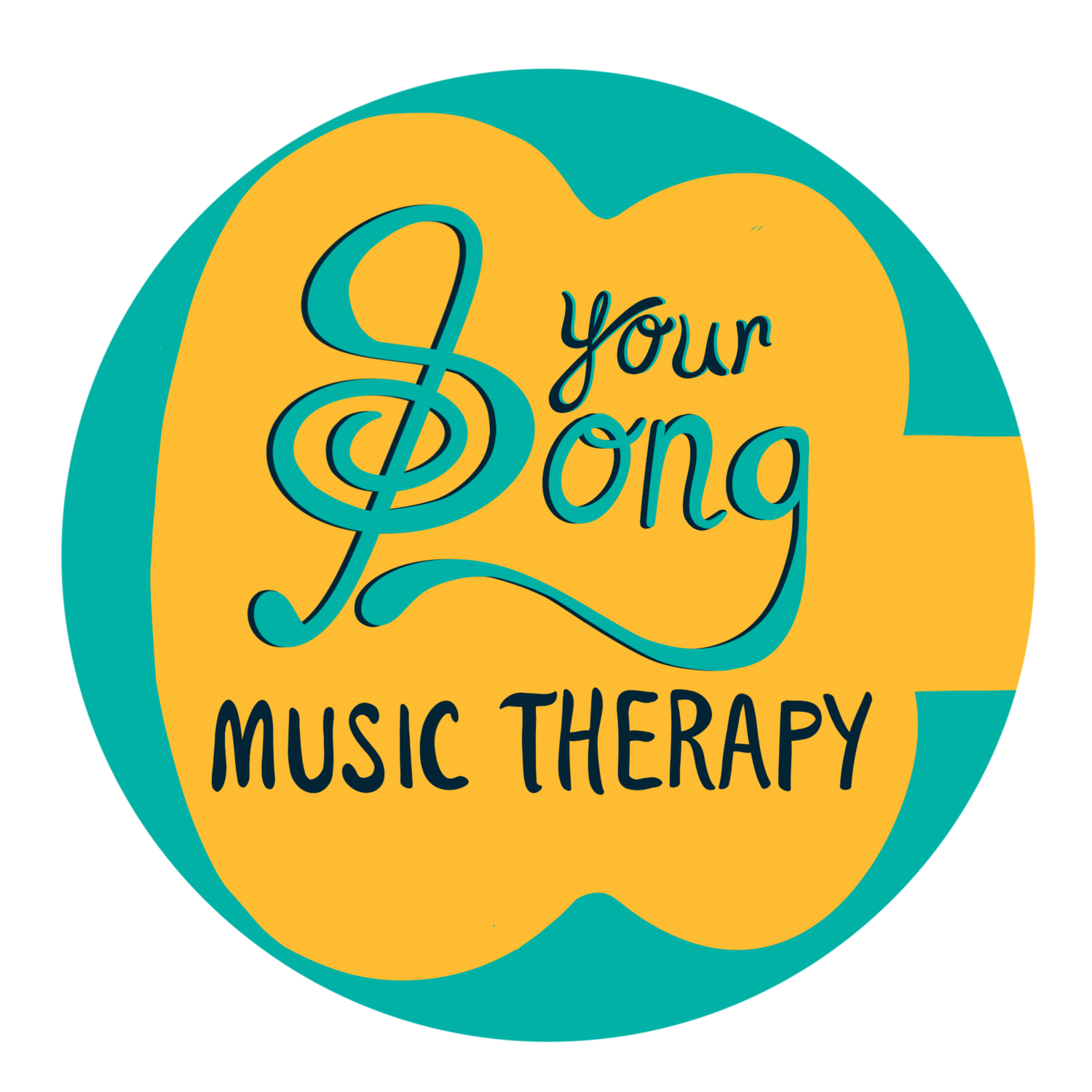What is Music Therapy?
Music Therapy is the use of music as a tool to reach wellness goals within a therapeutic relationship.
Music Therapists use evidenced based practices, rooted in research, to help individuals from all walks of life reach therapeutic goals related to emotional, cognitive, social, physical, and spiritual wellness.
When you start music therapy services, your music therapist will perform an assessment to find out about your goals, strengths, needs, music preferences, music experience, and how music can be used to help you meet your goals. Then, your therapist will create a treatment plan to support your goals, needs, and preferences. As you work through your treatment plan with your music therapist, they will keep documentation on progress of your goals and any adjustments that need to be made to your treatment plan. Music Therapists are bound to HIPAA compliance and will not share any of your personal or identifiable information with others without your explicit written consent.
Music Therapists must complete an accredited university Music Therapy program as well as a 1040 hour internship before sitting for the certification exam for music therapists. Only after passing the exam are we considered Music Therapists, Board Certified (MT-BC). Music Therapists are trained extensively on the ways music affects the brain as a stimulus, and are able to apply their knowledge to serve clientele of all ages, ability/disability, and identities. That is what makes us different from music performers, educators, or volunteers!
Music Therapists work in schools, hospitals, recovery centers, mental health facilities, nursing homes, hospice settings, and more!
You can learn more about the music therapy and music therapists at https://www.musictherapy.org/
Who is Music Therapy For?
Music Therapists work with people of all ages that have wellness goals related to:
Mental Health
Substance Use Disorders
Early Childhood Development
Autism
Physical Disabilities
Cognitive Disabilities
Medical Settings
Hospice and Palliative Care
Parkinson’s
Alzheimer’s
Grief
And much more!
What happens in Music Therapy?
Music Therapy can look many different ways to meet the needs of each individual client. Depending on what the client needs out of the therapeutic relationship, the music therapist will provide music interventions that are tailored to the abilities and needs of each person.
Music Therapy sessions can include music improvisation, in which the client, therapist, or both are actively making music in the moment. Clients do not need any previous music experience to engage in music improvisation in music therapy- you already have innate musical expression skills and a music therapist is trained on how to utilize them!
Songwriting is another common intervention in music therapy that allows our clientele to express themselves in a meaningful, creative, and supported way. We are trained on how to make songwriting accessible to those who have never done it. Songwriting can also lead to feelings of accomplishment and pride.
Music listening can also be utilized in music therapy sessions for a variety of purposes included guided breathing, mindfulness, relaxation, stimulation, pain reduction, as a way to facilitate discussion, and more.
Music Therapists also use movement to music in sessions as a way to work on physical goals such as coordination, range of movement, strength building, and more.
Because most people already have a positive relationship with music, music can be a very motivating force in therapy- that is why music therapy works so well for people with such diverse needs!


